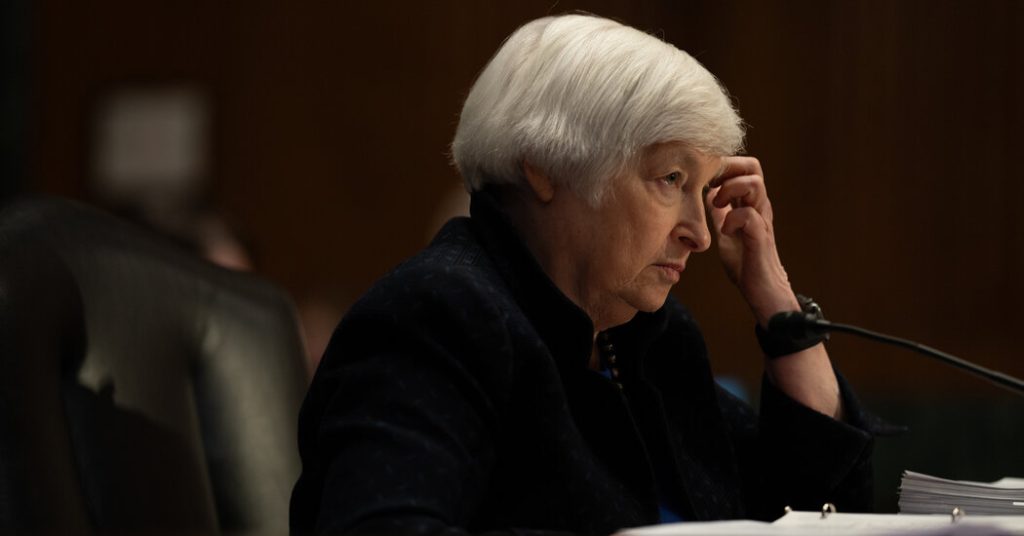The Biden administration has expressed growing concerns about the impact of heavily subsidized green technology exports from China on global markets. As the United States invests heavily in solar technology and electric vehicle batteries, China is also pumping money into its factory sector to boost its economy. There is tension over industrial policy between the two countries, despite efforts by President Biden and Chinese leader Xi Jinping to stabilize the relationship. Trade policy differences, investment restrictions, and cyberespionage issues continue to strain ties between the two largest economies.
Treasury Secretary Janet Yellen plans to address the issue of overcapacity in the green energy technology sector with Chinese officials during an upcoming round of economic talks in Beijing. In a speech at a solar cell factory in Georgia, Yellen will warn that China’s export strategy threatens to disrupt global supply chains developing around industries such as solar, electric vehicles, and lithium-ion batteries. She will stress that China’s overcapacity distorts global prices and production patterns, negatively impacting American firms, workers, and the global economy.
Yellen is expected to visit China in the coming weeks, where she will press her Chinese counterparts to address the issue of overcapacity in green energy technology production. She will compare China’s investments in this sector to its previous overinvestment in steel and aluminum, emphasizing the need for American firms and workers to compete on a level playing field. Yellen plans to make the issue of overcapacity a key topic of discussion during her trip to China, urging Chinese officials to take necessary steps to address the challenge.
The Biden administration’s industrial investments, funded by the Inflation Reduction Act of 2022, are helping to revive struggling companies like the Suniva solar panel company in Georgia. The company plans to reopen its plant this spring thanks to the administration’s green energy investments. The private sector has announced over $200 billion in clean power investments since the passage of the Inflation Reduction Act, which included significant tax credits and subsidies for low-emission energy production. China, which invested over $130 billion in its solar sector last year, has raised concerns about America’s manufacturing investments and the eligibility criteria for U.S. tax credits for electric vehicles.
China recently filed a complaint with the World Trade Organization, arguing that the Biden administration’s electric vehicle subsidy policies are discriminatory. The Chinese government has expressed frustration about buyers of electric vehicles that contain components made in certain countries not being eligible for U.S. tax credits. This complaint underscores the ongoing tensions between the United States and China over trade policies and investments in green technology. Despite efforts to stabilize the relationship between the two countries, disagreements persist on various issues, including industrial policy and market distortions caused by heavily subsidized exports.


